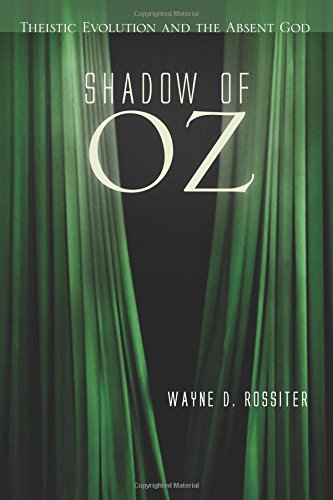 From Wayne Rossiter, author of Shadow of Oz: Theistic Evolution and the Absent God: at his book blog:
From Wayne Rossiter, author of Shadow of Oz: Theistic Evolution and the Absent God: at his book blog:
It’s an odd pattern. It was this problem that came to mind as I recently revisited Living with Darwin: Evolution, Design and the Future of Faith, by Philip Kitcher. Kitcher is a philosopher at Columbia University, and he specializes on biology. His book was published by Oxford University Press, and was the recipient of the 2008 Lannan Notable Book Award. We should take his views seriously.
His book begins with a forceful assertion: “From the perspective of almost the entire community of natural scientists world-wide, this continued resistance to Darwin is absurd. Biologists confidently proclaim that Darwin’s theory of evolution by natural selection is as well established as any of the major theories in contemporary science.”
This is not really a prediction. But, it is a statement that was wrong even before it was penned. More.
People who are committed to intellectual integrity in their own work often miss this central point: Once a bully pulpit like Darwinism has been established the occupant does not need to be correct, accurate or even useful. He can be a drag on the system. He can lead the march into degenerate science. He can, incidentally, fix you good if you try to offer an alternative view however grounded.
Bullies are not dislodged by being shown to be wrong, only by being successful opposed. Efforts so far have been commendable but quite honestly, more is needed.
See also: Biologist Wayne Rossiter on Joshua Swamidass’ claim that entropy = information
Follow UD News at Twitter!